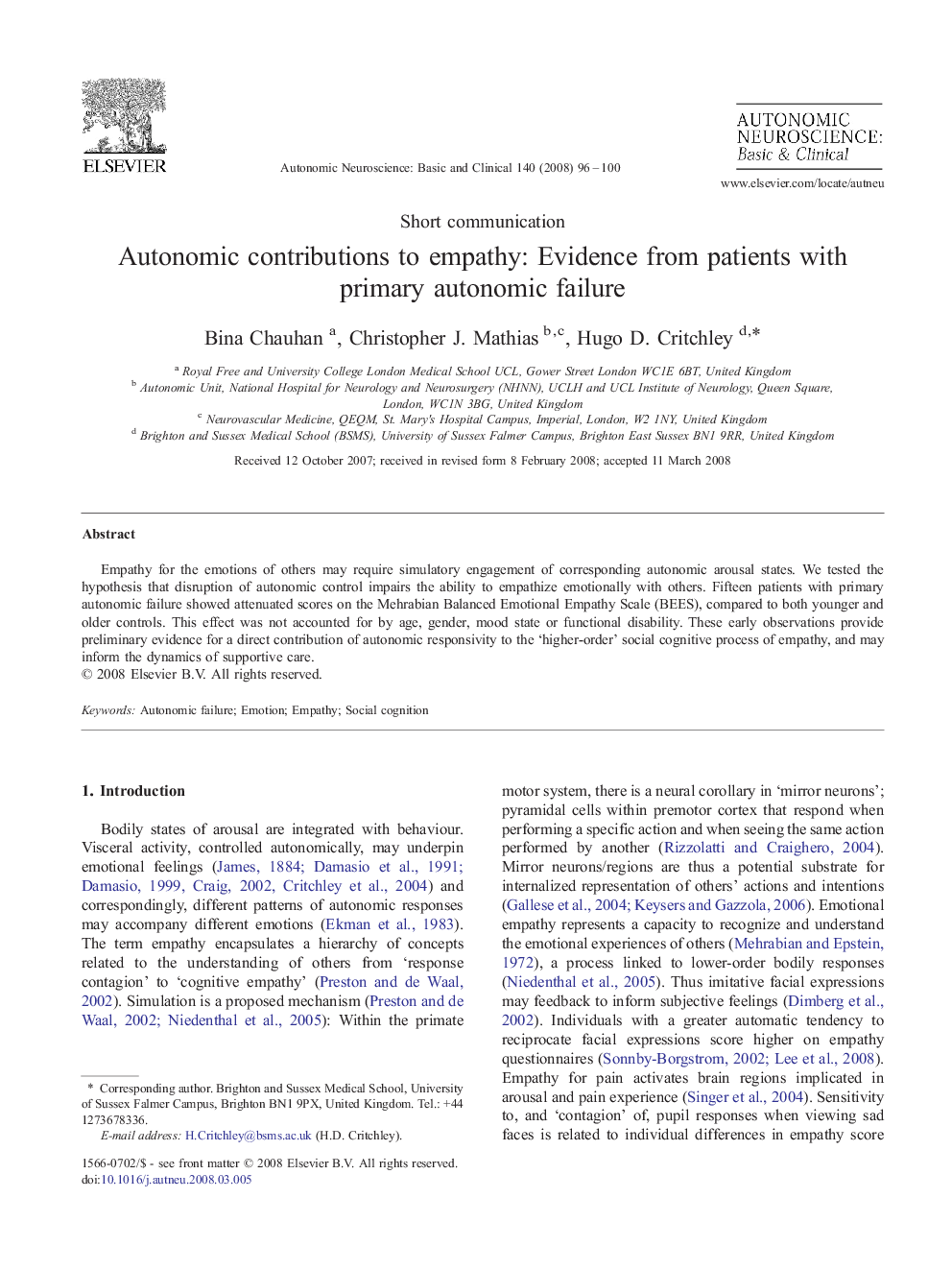| Article ID | Journal | Published Year | Pages | File Type |
|---|---|---|---|---|
| 3035438 | Autonomic Neuroscience | 2008 | 5 Pages |
Abstract
Empathy for the emotions of others may require simulatory engagement of corresponding autonomic arousal states. We tested the hypothesis that disruption of autonomic control impairs the ability to empathize emotionally with others. Fifteen patients with primary autonomic failure showed attenuated scores on the Mehrabian Balanced Emotional Empathy Scale (BEES), compared to both younger and older controls. This effect was not accounted for by age, gender, mood state or functional disability. These early observations provide preliminary evidence for a direct contribution of autonomic responsivity to the ‘higher-order’ social cognitive process of empathy, and may inform the dynamics of supportive care.
Related Topics
Life Sciences
Neuroscience
Cellular and Molecular Neuroscience
Authors
Bina Chauhan, Christopher J. Mathias, Hugo D. Critchley,
